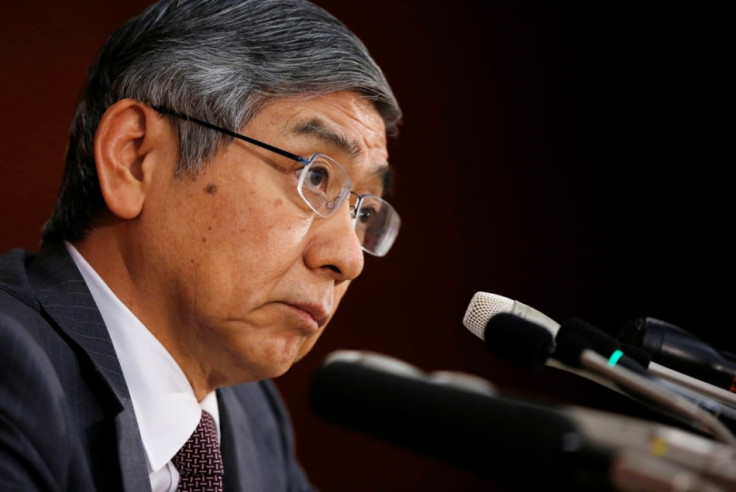Bank of Japan to Continue Aggressive Monetary Stimulus as Growth Remains Moderate

Japan's central bank has maintained its aggressive monetary easing measures and its outlook for a moderate economic recovery.
The country has recently experienced an improvement in domestic and external demand.
The Bank of Japan (BOJ) said it will continue its money market operations so that the monetary base will increase at an annual pace of about 60tn yen ($600bn, £372bn, €444bn) to 70tn yen.
"Japan's economy has been recovering moderately," the central bank said in its latest policy statement.
The bank noted that Japan's exports have picked up in line with a moderate growth in overseas economies. Business fixed investment, public investment and housing investment have all improved according to the bank.
Furthermore, industrial production has increased reflecting better demand from domestic and international markets. Meanwhile, inflation expectations appear to be rising, as consumer price index (CPI) rose 0.5 to 1.0% year on year.
"The year-on-year rate of increase in the CPI is likely to rise gradually," the bank said.
The BOJ led by Harushiko Kuroda unveiled its ultra-loose monetary policy in April with a view to take the country out of a deflationary period that lasted for more than a decade. It targets an inflation rate of 2% in about two years by doubling base money through aggressive asset purchases.
Having taken office at the end of 2012, Japan's Prime Minister Shinzo Abe has advocated massive fiscal and monetary easing measures to end deflation and boost economic growth.
He is resorting to a three-arrow strategy dubbed "Abenomics" that involves aggressive monetary policy, flexible fiscal policies, and growth reforms.
While the measures contributed to economic growth in terms of industrial output, employment, inflation and workers' income, some analysts argued that the benefits of Abenomics may not be sustainable and will not prompt more corporate investment and wages in the absence of structural reforms such as tax cuts and labour reforms.
Uncertainty over Economy Remains
The European debt problem, developments in the emerging and commodity-exporting economies and the pace of recovery in the US economy are still remaining as roadblocks to the country's growth, according to the central bank.
The bank said it will examine both upside and downside risks to economic activity and prices while taking decisions, and make adjustments as appropriate.
© Copyright IBTimes 2025. All rights reserved.






















